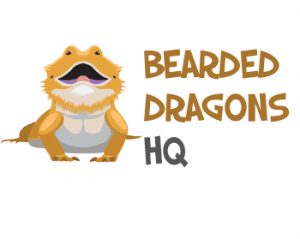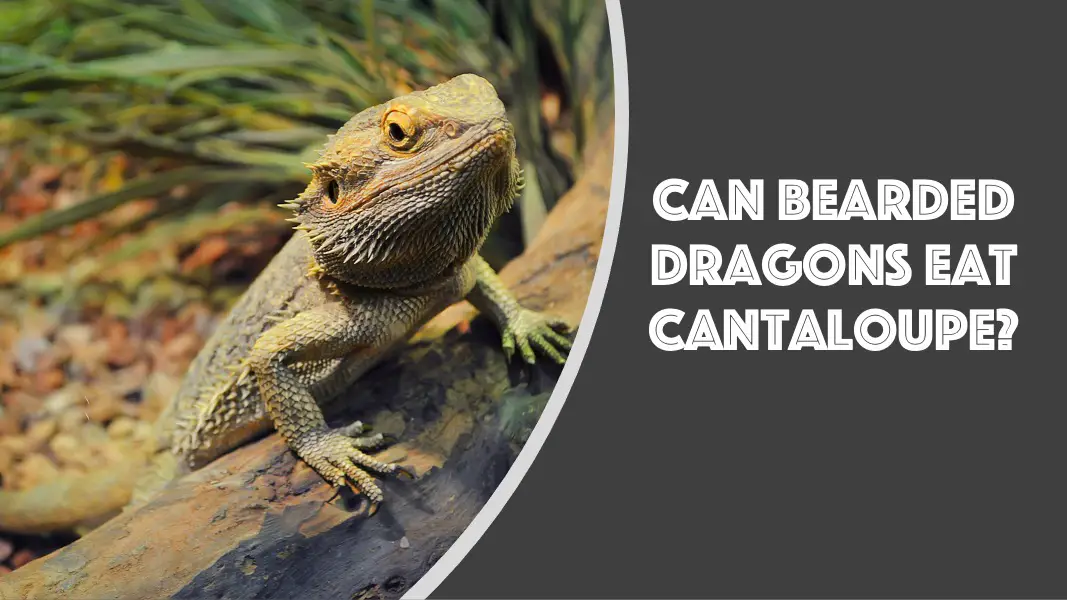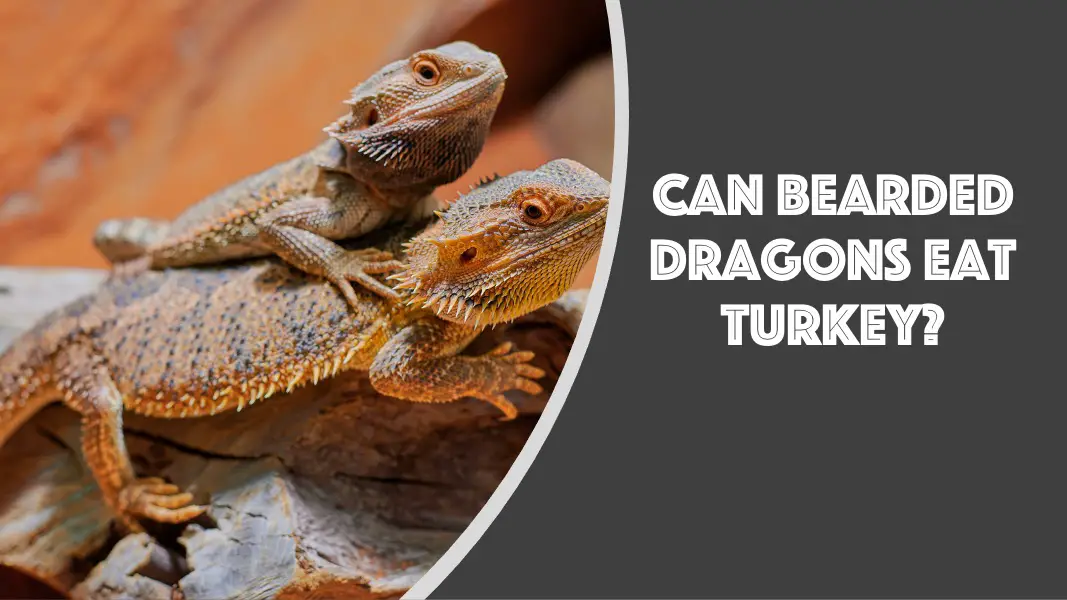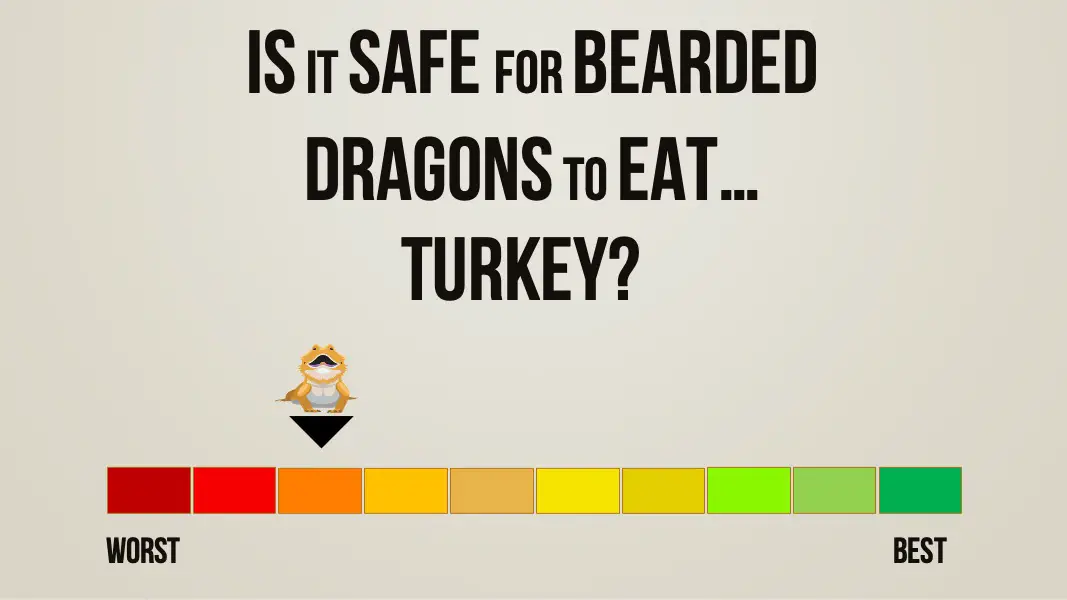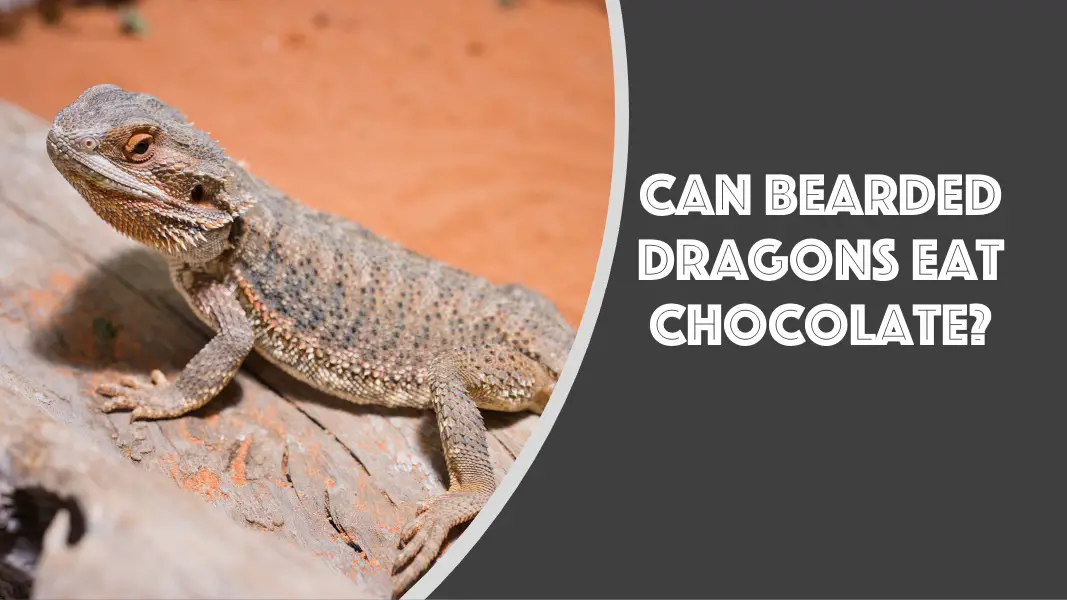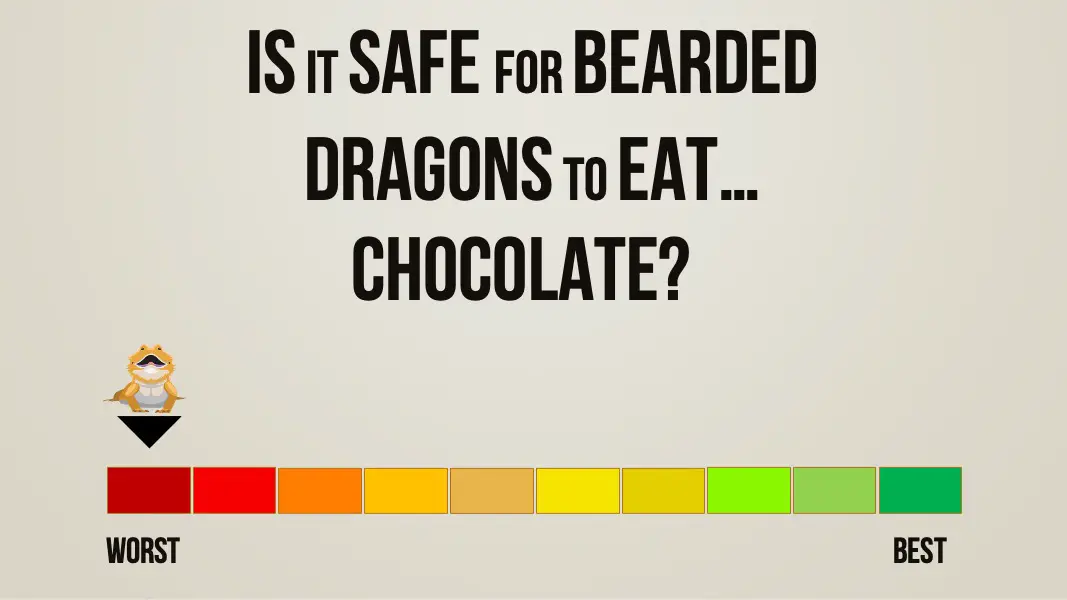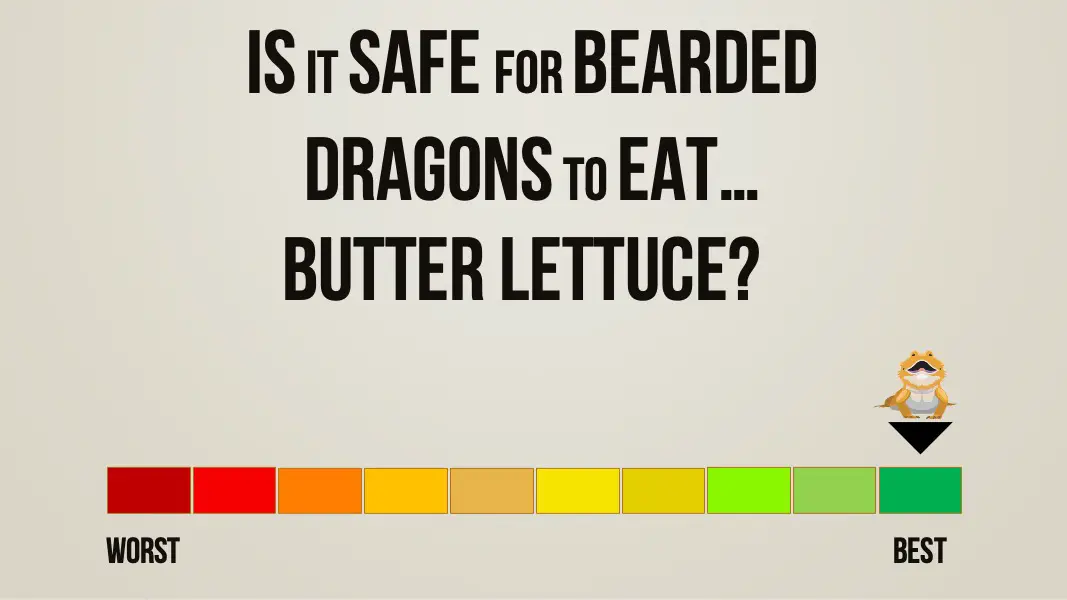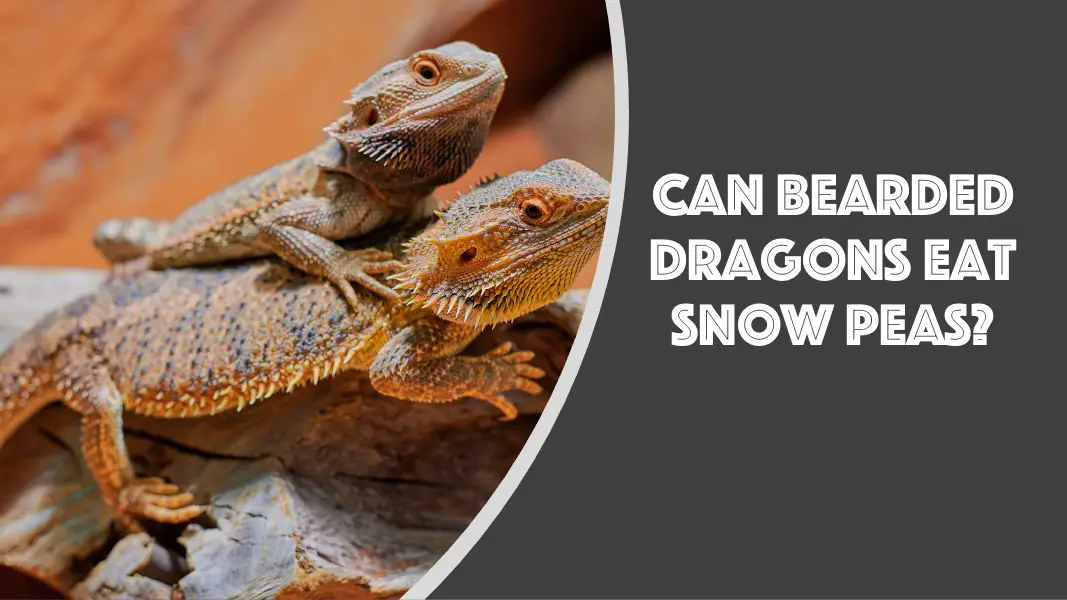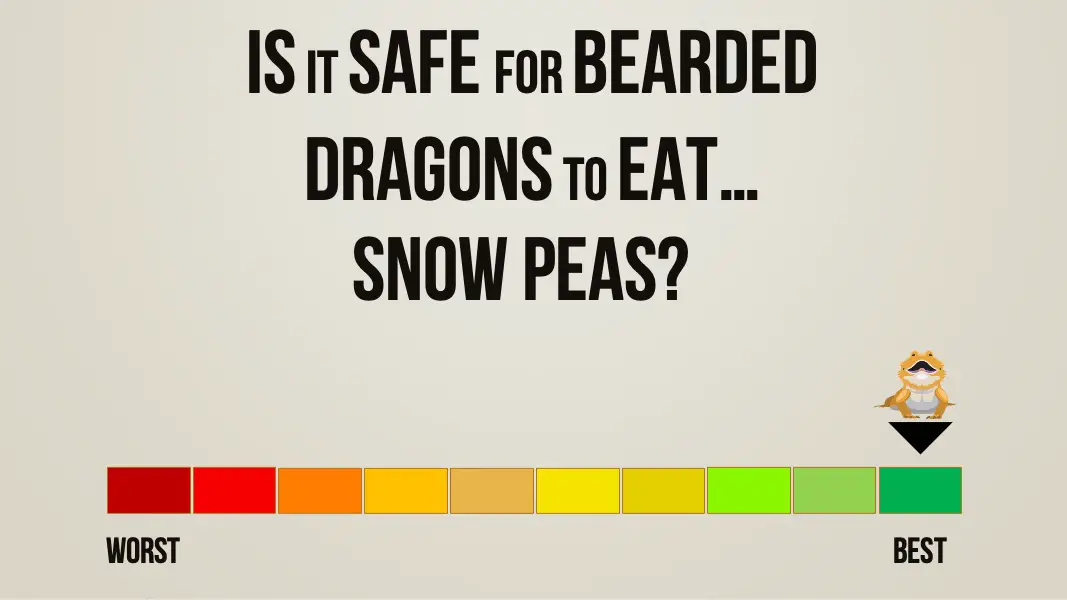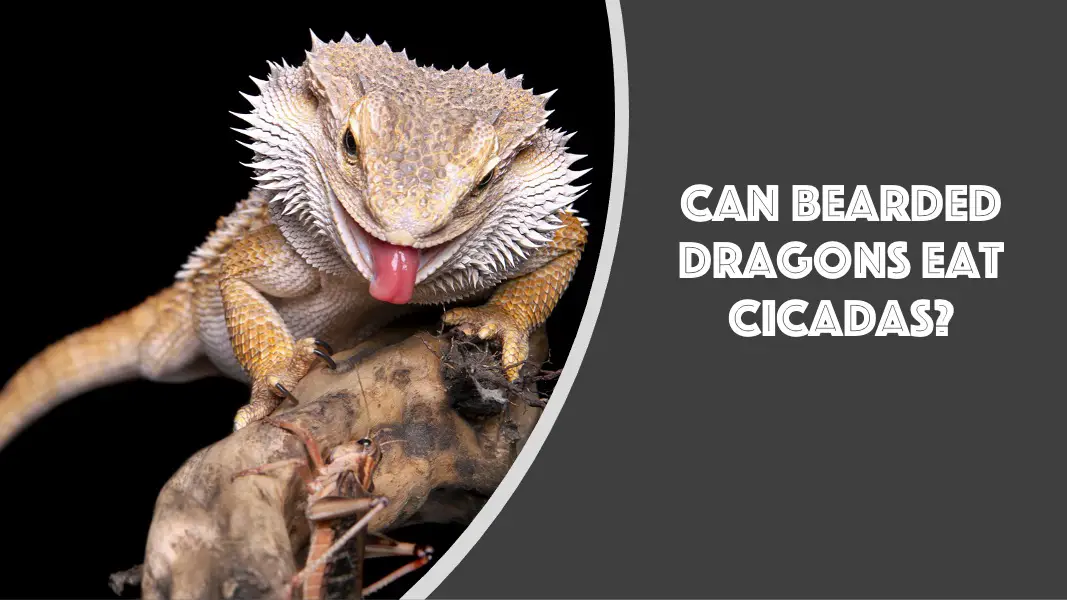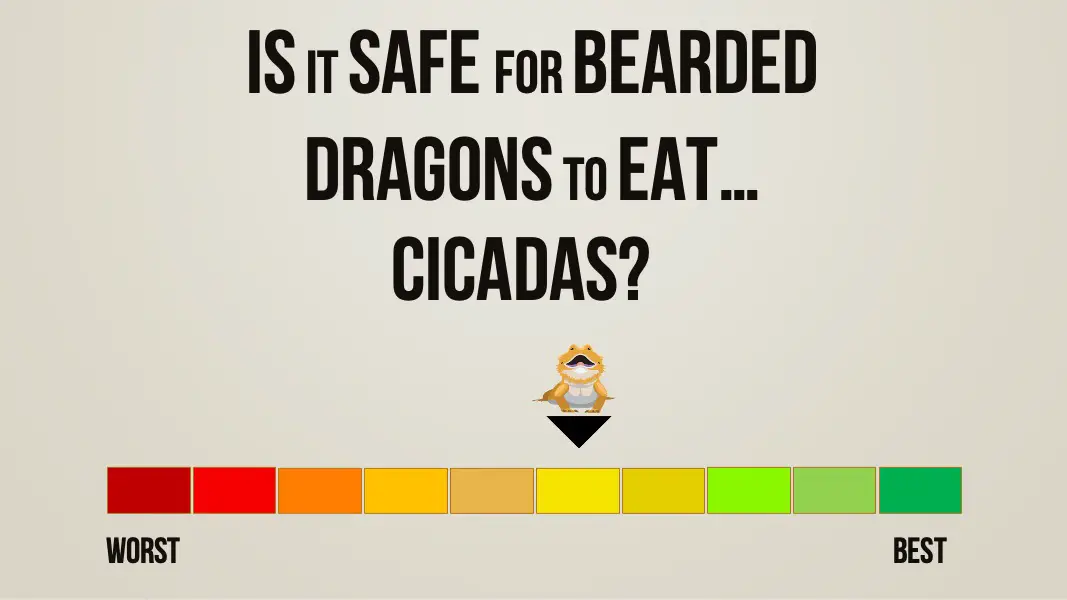Yes, bearded dragons can eat cantaloupe. However, they should not be a staple food source for your dragon.
Cantaloupe is a great treat for a bearded dragon because it tastes good and has some positive nutritional value as well. But, cantaloupe should not be fed on a daily basis, nor should they eat too much of it. Bearded dragons love fruits and veggies but they often contain high sugar levels which can lead to obesity if fed exclusively (more than 10% of their daily diet).
So, we recommend feeding your bearded dragon cantaloupe once per week at most. This is an excellent way to provide variety in their diet and give them something that they will love! If you do feed the fruit more regularly and want to offer less (for example: once every 10 days), you can freeze it first. This way, the cantaloupe won’t spoil in the fridge and will last longer.
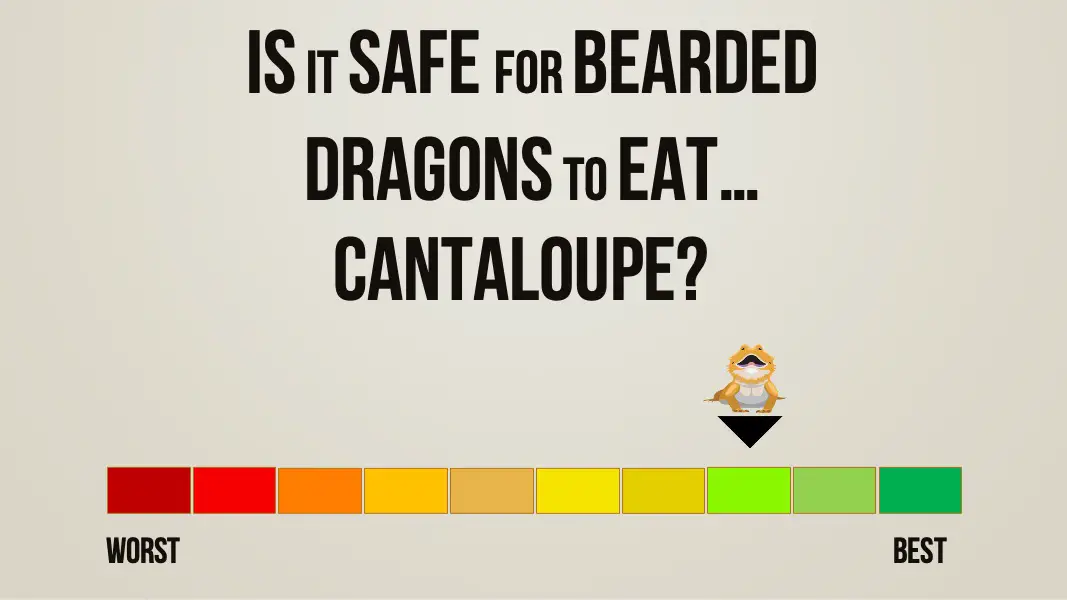
Nutritional Components of Cantaloupe
Cantaloupe contains a considerable amount of vitamins and minerals, including vitamin C. It is also rich in potassium and beta-carotene. These nutrients are important for your dragon’s health but they will not provide him with proper levels of calcium if he doesn’t eat his greens as well.
So, while cantaloupe is a great treat to give your bearded dragon, it should not be the only food item that you offer on a regular basis. Bearded dragons need calcium to support their growth and bone development. A diet rich in fruit may result in malnutrition over time which can damage their health and even cause death!
Therefore, feed your dragon fruits as treats but make sure to supplement their diet with vegetables as well.
Benefits of Feeding My Bearded Dragon Cantaloupe
There are numerous benefits of feeding your bearded dragon cantaloupe. In addition to providing a nutritional boost, it can be a great way to bond with your pet while he eats the treat!
Cantaloupe is an unusual food item for a bearded dragon and many of them will appreciate trying something new. They may eat the fruit on their own but they also find it very tasty which means that you can “tempt” him into doing tricks by offering him some fruits as a reward after he does what you want!
In addition, fresh fruit has been known to help dragons clear up their digestive tract. Constipation is more common in dragons than most people realize and if left untreated, it causes significant damage. So, feeding your pet fresh fruit can help improve its digestive process and make it easier for waste to come out naturally.
How To Prepare Cantaloupe For My Bearded Dragon
If you want to know how to prepare cantaloupe for your bearded dragon, the process is actually quite simple. First, peal the cantaloupe, and then all you need to do is cut a portion of fruit and remove the seeds! Then, simply give it to your pet and watch him enjoy his snack.
It’s important that you monitor your pet as he eats the fruit to make sure that he doesn’t eat too much which can lead to weight gain and other problems. It only takes a few seconds for a dragon to finish off a piece of fruit so be proactive about checking on him regularly so that no accidents happen.
Also, if you’re wondering about the size of a piece of cantaloupe for your beardie, the general rule of thumb is to give him nothing bigger than the space between his eyes.
Can Bearded Dragons Consume These Foods?
What about Watermelon?
Many people want to know if bearded dragons can eat watermelon as well. The short answer is yes; however, this really depends on the dragon! Some varieties of watermelon are higher in sugar than others. As a result, they should not be fed on a regular basis.
The best watermelon for your dragon contains fewer sugars and higher levels of lycopene. This compound is likely responsible for many of the benefits that watermelon can provide! However, it is still an item that should be offered in moderation because it still has high sugar content.
Risks of Feeding My Bearded Dragon Cantaloupe
Due to the high sugar levels in cantaloupe, it is a fruit that should be fed sparingly to bearded dragons. In addition, there are risks involved with feeding them too much of this item. Feeding your bearded dragon cantaloupe could easily cause him/her to become obese.
For one thing, there have been cases where dragon owners unknowingly feed their pets rotten fruit which resulted in fatal illnesses. This is because many kinds of fruit can ferment inside of a dragon’s digestive tract if he eats too much and has no way to expel the gas that forms!
In addition to fermentation, some varieties of fruits contain high amounts of pesticides. Cantaloupe itself contains several different kinds so you need to wash it well before serving it to your pet.
What about Leaving My Bearded Dragon Alone With Food
Many owners would like to know if it is ok to leave their pets alone with food that they can eat. This should not be done for a variety of reasons. First and foremost, your bearded dragon might find himself eating rotten fruit which will cause him to become sick and die!
In addition, you never know when another animal or young child may approach your pet while he is eating or playing with his food. This could result in accidental injuries to themselves as well as serious harm to your dragon!
Alternative Foods For Bearded Dragons
Some good alternative foods for your dragon are:
- Sweet potato
- Zucchini
- Collard Greens
- Spinach
- Bell Peppers
These items should be fed in moderation and they can supplement your dragon’s diet while reducing his/her reliance on fruit. Some of these vegetables may alter the color of your pet’s skin but this is not a problem since it is simply a pigment change that will reverse itself when you stop feeding him them!
What Are Some Good Staple Foods For My Bearded Dragon’s Diet?
In addition, the following foods should form the bulk of your dragon’s diet:
- Crickets
- Mealworms
- Superworms
- Silkworms
- Cockroaches
These insects are high in protein and contain little to no fat. In addition, many of them will come with a variety of minerals and vitamins that can be beneficial to your bearded dragon’s overall health and wellness!
Can Bearded Dragons Eat Cantaloupe? – The Conclusion!
While a bearded dragon can eat cantaloupe, it is a good idea to feed him/her this fruit sparingly. In addition, it should not be included as part of your pet’s regular diet if he is going to live for an extended period of time.
Instead, feed your dragon the types of food that are mentioned throughout this article. These items contain fewer sugars and high levels of nutrients which will help keep your pet healthy for years to come!
